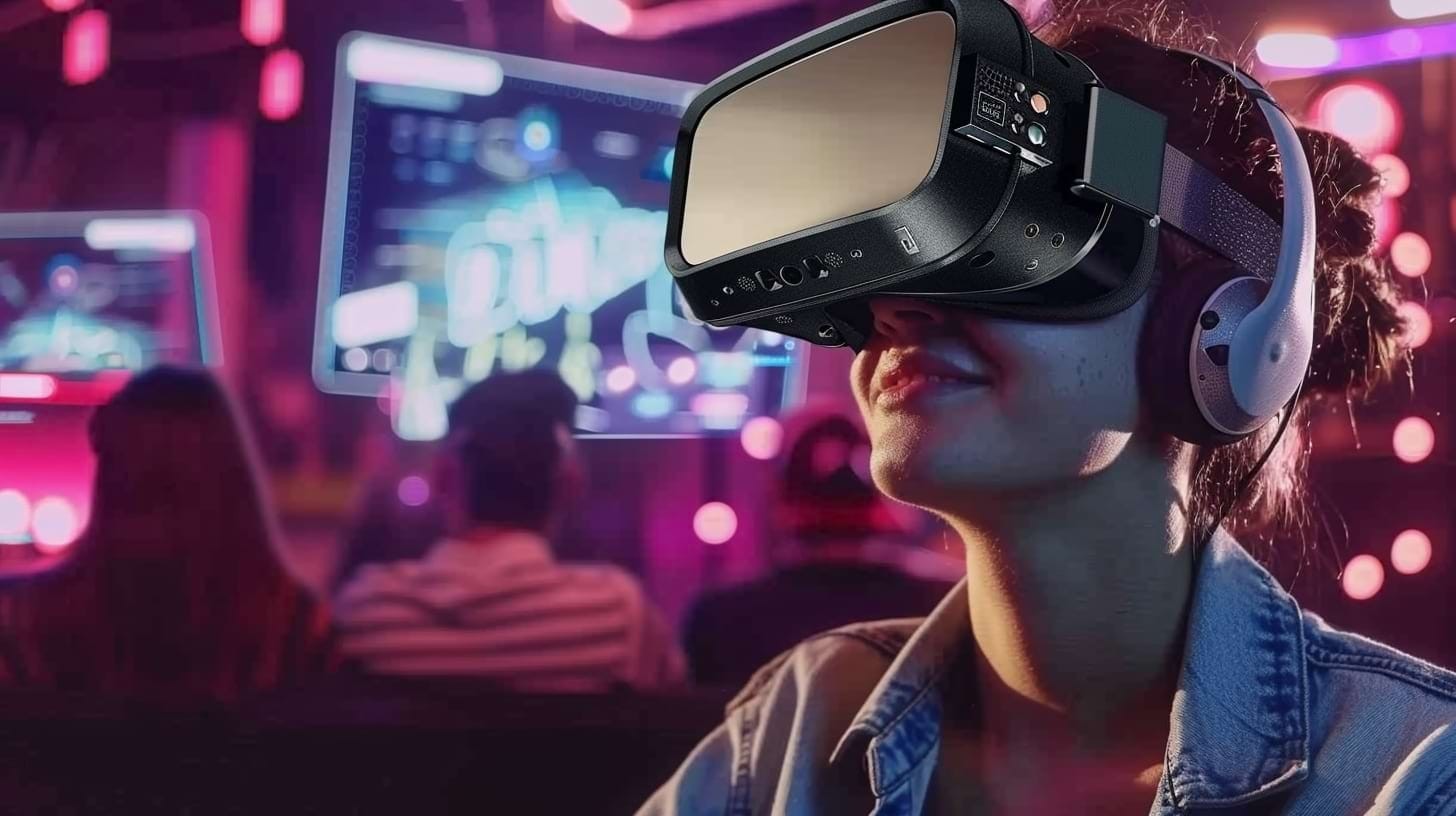A Glimpse into the Future: The Potential of VR in Filmmaking
Virtual reality offers a new level of immersion and interactivity. As this technology continues to advance, its integration into the filmmaking process is poised to unlock new dimensions in cinema, redefining the way stories are told and experienced


The evolution of cinema has been a story of continuous innovation, with each technological breakthrough pushing the boundaries of storytelling and audience engagement. From the advent of sound to the rise of color and the digital revolution, the film industry has embraced transformative technologies that have redefined the cinematic experience.
🚀 Today, we stand on the cusp of a new era, where VR filmmaking unlocks creative vistas and can reshape filmmaking's very essence.
VR's Impact on Filmmaking Techniques and Storytelling: A Narrative Revolution 🎬
VR changed the traditional cinema experience, where viewers are mere observers. Instead, it plunges them into a realm of emotional and visceral engagement. This empowers filmmakers to craft narratives that seamlessly envelop the audience, creating a sense of "being there" alongside the characters and experiencing the story firsthand.
Immersive Storytelling
Imagine the gut-wrenching impact of virtually walking alongside a Holocaust survivor in a VR documentary or the exhilarating rush of soaring through the skies with a dragon in a fantasy epic.
VR allows filmmakers to create worlds where viewers see and truly feel the story unfold.
Take, for example, the groundbreaking VR experience "Clouds Over Sidra"(2015). This short film transported viewers into the life of a 12-year-old Syrian refugee, providing an intimate and visceral understanding of her daily struggles. The film fostered a profound sense of empathy and connection by placing the audience within the narrative, far beyond what traditional cinema could achieve.
Сlick on the buttons on the video in the upper left corner to check the 360 effect 👇
Narrative Innovation in VR
VR filmmaking champions a revolution in storytelling, where viewers become active participants, crafting a truly interactive film experience. This opens the door to non-linear narratives that branch and evolve based on individual choices and interactions. This level of interactivity holds the potential to redefine genres like interactive fiction, where stories morph and respond uniquely to each viewer's journey.
Revolutionize your filmmaking with VR and AI-powered tools.
Streamline production, enhance storytelling, and immerse your audience like never before.
The Technical Side of VR in Filmmaking: Tools for a New Frontier 🧰
While the creative possibilities of VR are vast, the technology also presents significant technical challenges for filmmakers.
VR Cinematography and VR Film Equipment
VR filmmaking presents unique technical challenges, primarily due to the specialized equipment required. Unlike traditional cameras designed to capture a fixed frame, VR demands a comprehensive 360-degree spherical field of view. This has necessitated the development of specialized VR camera rigs, with high-end options from companies like GoPro, Nokia, and Jaunt ranging in price from $5,000 to a staggering $30,000.
🎯 In 2016, "The Martian VR Experience" utilized VR technology to transport viewers to Mars's surface, complementing the feature film's theatrical release. This immersive experience cost 20th Century Fox more than $200,000 to produce, showcasing the financial investment required for high-quality VR content.
Furthermore, VR filmmaking requires a different approach to cinematography and staging. Directors must consider the traditional frame and the entire spherical environment, ensuring that the action and set design are cohesive and engaging from every angle.
VR Production Techniques
VR filmmaking leans heavily on specialized post-production software to handle tasks like stitching together individual footage, seamlessly integrating 3D elements, and constructing interactive experiences. These specialized VR editing suites, like Adobe Premiere Pro and Apple Final Cut Pro, offer powerful tools that empower filmmakers to craft truly immersive and captivating narratives.
💻 Additionally, VR content demands higher resolutions and bitrates compared to traditional video formats to maintain image quality when viewed in an immersive headset environment.
Future of Storytelling with VR and its Challenges in Film Production🔮
As VR technology continues to evolve, its impact on the film industry is poised to grow exponentially.
🏆 Major studios like Disney, 20th Century Fox, and Worner Brothers have already begun experimenting with VR content, recognizing its potential as a complementary medium to traditional cinema.
💰 According to industry analysts, the global AR and VR market for entertainment and media is expected to reach $38.6bn in 2024. This market is expected to grow at an annual rate of 10.77% (CAGR 2024-2028).
However, the widespread adoption of VR in filmmaking is not without its challenges.
💻 One of the primary hurdles is the need for specialized hardware and software, which can be costly and require significant training for filmmakers and production teams.
👥 Additionally, creating truly immersive and interactive VR experiences is a complex undertaking, demanding a deep understanding of user experience design and human-computer interaction.
🌐 Finally, the distribution and monetization of VR content remain uncertain, with platforms and business models still evolving.
While VR headsets are becoming more affordable, widespread adoption remains in its nascent stages, limiting the potential audience reach for VR films compared to traditional cinema.
However, the potential of VR filmmaking is undeniable. As VR technology matures and becomes more accessible, we can anticipate a wave of innovative and groundbreaking VR films that push the boundaries of storytelling and audience engagement, forever altering the cinematic landscape.

VR and AI: The Powerful Duo 🤝🤖
Although the road ahead may be paved with difficulties, the potential benefits are enormous. As we navigate this new frontier, one thing is certain: the future of filmmaking has never been more exciting.
Hollywood is on the verge of a VR-powered audience revolution. No longer passive observers, viewers will be active participants woven into the narrative tapestry. As VR technology matures, we can expect a wave of groundbreaking cinematic experiences that redefine storytelling and the way audiences connect with the story.
The same can be said about the use of AI in filmmaking. AI-based software Filmustage is specially created to become a full-fledged assistant in pre-production.
VR helps to surprise viewers, AI, in turn, helps automate film production processes, from breaking down a script to optimizing the search for locations. Whatever film you shoot, with Filmustage you will do it much easier and more efficiently.
From Breakdown to Budget in Clicks
Save time, cut costs, and let Filmustage’s AI handle the heavy lifting — all in a single day.